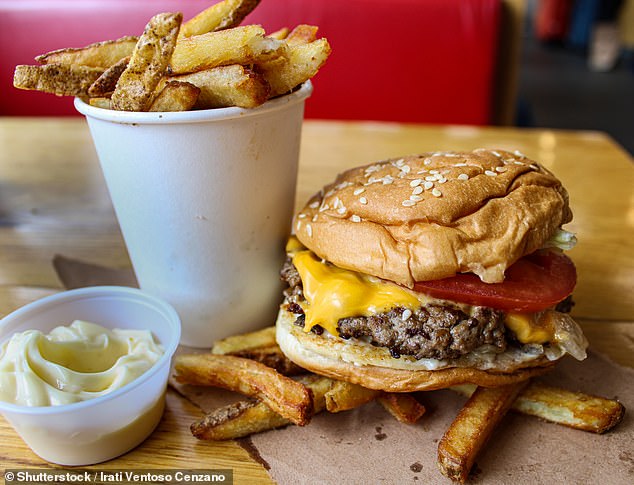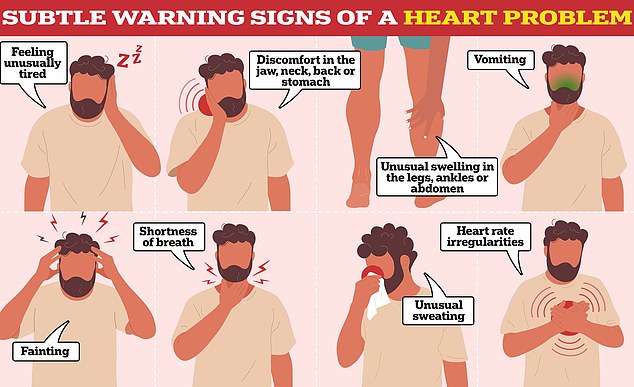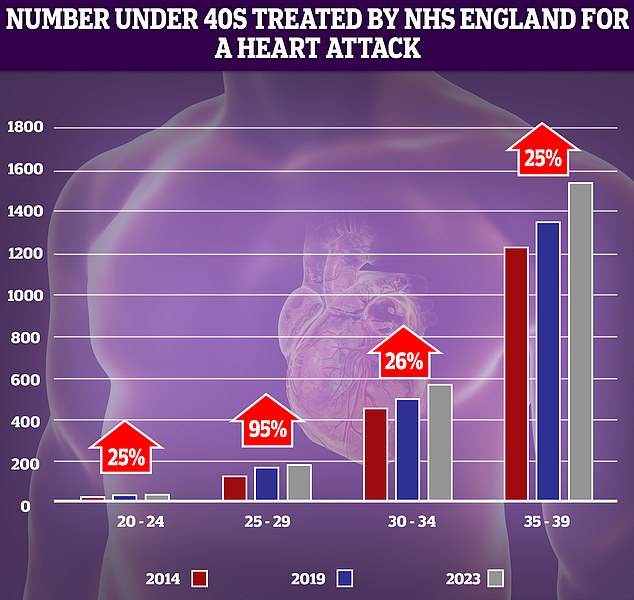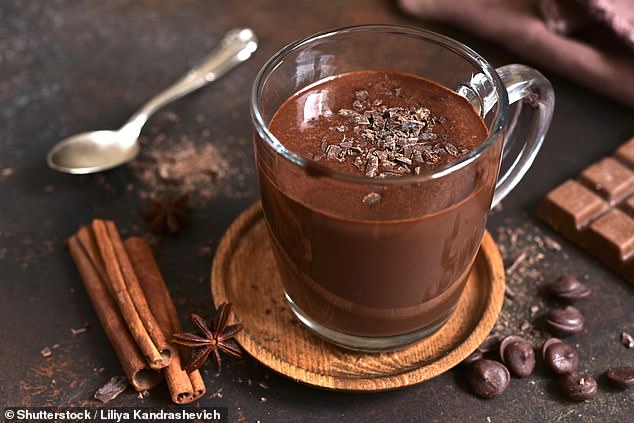Washing down cheeseburgers and fries with hot chocolate could improve the meal for your heart and prevent you from feeling exhausted, scientists said today.
The powerful compounds hiding in chocolate, particularly dark varieties, have now been found to improve cardiovascular health even after eating high-fat foods.
Flavanols, as they are called, are also abundant in apples, berries, and green tea.
British researchers, who tracked two dozen young adults, found that the benefits came from consuming 695 mg of flavanols in cocoa powder, about the equivalent of six squares of high-quality dark chocolate.
It also prevented a temporary decline in blood vessel function, compared to low-flavanol drink options.
Experts said people who were likely to reach for a high-fat treat when they were stressed or because it was convenient “could make a real difference” to their health by adding a cup of low-sugar cocoa or green tea.
Dr Catarina Rendeiro, assistant professor of nutritional sciences at the University of Birmingham and lead author of the study, said the team was particularly interested in seeing whether the festive treat could protect the heart from stress-related damage.
“We know that when people are stressed, they tend to gravitate toward high-fat foods,” he said. «We have previously shown that fatty foods can impair the body’s vascular recovery after stress.
The powerful compounds hiding in chocolate, particularly dark varieties, have now been found to improve cardiovascular health even after eating high-fat foods.

It also prevented a temporary decline in blood vessel function, compared to low-flavanol drink options.
“In this study we wanted to test whether adding a flavanol-rich food to fatty food would alleviate the negative impact of stress on the body.”
Meanwhile, Professor Jet Veldhuijzen van Zanten, an expert in biological psychology at the University of Birmingham and co-author of the study, added: “Modern life is stressful and the impact of stress on our health and the economy has been well documented.”
‘Therefore, any changes we can make to protect ourselves from some of the symptoms of stress are positive.
“For those who tend to reach for a treat when they’re stressed or rely on convenience foods because they work in high-stress jobs or are short on time, incorporating some of these small changes could make a real difference.”
The research, published in the journal Food and function23 adults with a healthy BMI and an average age of 22 years participated in the study.
Most exceeded the daily dietary recommendations for fats and sugars, while no volunteers met the suggested daily intake of fiber.
But they consumed approximately 240 mg of flavonoids per day, the average intake of an adult.
All participants were given two butter croissants with 10 g of salted butter, one and a half slices of cheddar cheese, and 250 ml of whole milk for breakfast.

While some warning signs are easy to spot, such as severe chest pain, others are more vague and difficult to identify.
Half were then offered a low-flavonol cocoa drink containing around 5.6 mg of flavanols, and the others were given a high-flavonol cocoa drink with 695 mg.
After an 8-minute rest period, all volunteers were asked to complete an 8-minute mental math test that was speeded up if they answered a question incorrectly.
During the 16 minutes, the scientists measured blood flow in the forearm of all participants, cardiac activity and oxygen levels in the prefrontal cortex, a region of the brain that plays a key role in decision-making, planning and the attention.
They found that the task “significantly” increased heart rate and blood pressure, similar to the stress that can be encountered in daily life.
The scientists also found that those who drank the low-flavanol drink had reduced blood vessel function that lasted up to 90 minutes.
In comparison, among consumers of high-flavanol cocoa, this time was only half an hour.
Dr Rendeiro added: ‘This research shows that drinking or eating a food rich in flavanols can be used as a strategy to mitigate some of the impact of poor food choices on the vascular system.
“This can help us make more informed decisions about what we eat and drink during stressful periods.”

NHS data shows an increase in the number of young adults suffering heart attacks over the last decade. The largest increase (95 percent) was in the 25- to 29-year-old demographic, although as the number of patients is low, even small spikes can seem dramatic.
Experts advised looking for “minimally processed” cocoa powder in supermarkets if you’re making a festive drink this holiday season.
This means products with few ingredients (cocoa is the main one) and low amounts of sugar.
If hot chocolate isn’t your drink of choice, there are other ways to get a higher dose of flavanols, including green tea, black tea, and berries.
It comes as alarming data was revealed earlier this year. that premature deaths from cardiovascular problems, such as heart attacks and strokes, had reached their highest level in more than a decade.
MailOnline has previously highlighted how the number of young people under 40 in England being treated for heart attacks by the NHS is increasing.
Cases of heart attacks, heart failure and stroke among those under 75 have fallen since the 1960s thanks to plummeting smoking rates, advanced surgical techniques and advances such as stents and statins.
But rising rates of obesity and its catalog of associated health problems, such as high blood pressure and diabetes, are now believed to be one of the main contributing factors.

